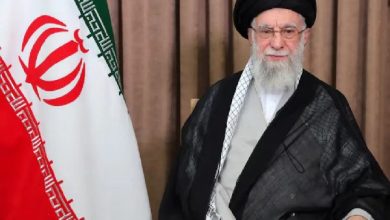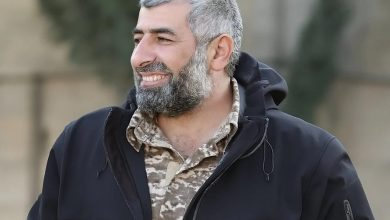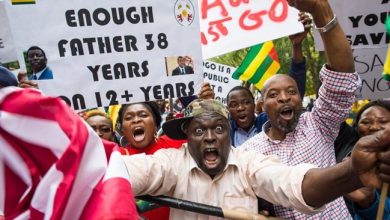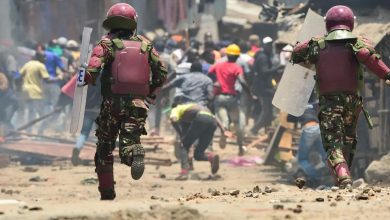Rwanda, DR Congo Sign US-Brokered Peace Deal Amid Concerns Over Mineral Rights and Justice
Rwanda and DR Congo have signed a peace deal in Washington to end years of deadly conflict.
The agreement calls for halting rebel support and boosting stability in the troubled Great Lakes region.
Rwanda and the Democratic Republic of Congo (DRC) signed a peace agreement on Friday in Washington, D.C., aimed at ending years of deadly conflict in the eastern region of the DRC. The deal, which was facilitated by Qatar and finalized under the Trump administration, commits both nations to cease backing rebel groups and work toward regional stability.
U.S. President Donald Trump, who hosted the signing at the White House, touted the agreement as both a diplomatic win and a strategic move to access the DRC’s vast mineral reserves.
“Today, the violence and destruction comes to an end, and the entire region begins a new chapter of hope and opportunity,” Trump said as he welcomed the foreign ministers of both countries. “This is a wonderful day.”
M23 and regional tensions
The peace deal follows a rapid advance by the M23 rebel group an ethnic Tutsi militia reportedly supported by Rwanda across eastern DRC earlier this year. The group seized significant territories, including the key city of Goma, heightening tensions in the already volatile region.
Although the agreement does not directly address the M23’s territorial gains, it calls on Rwanda to end what it described as “defensive measures.” Rwanda has consistently denied direct support for the M23 but has expressed concern over the continued presence of the Democratic Forces for the Liberation of Rwanda (FDLR), a Hutu militia group composed in part of individuals linked to the 1994 genocide.
The agreement outlines a commitment to “neutralize” the FDLR. Rwanda’s Foreign Minister Olivier Nduhungirehe emphasized the need for an “irreversible and verifiable end to state support” for the Hutu militant group as a priority.
“This must be the first order of business,” he said at the State Department signing ceremony. However, he cautioned, “We must acknowledge that there is a great deal of uncertainty in our region, and beyond, because many previous agreements have not been implemented.”
DR Congo’s Foreign Minister Therese Kayikwamba Wagner underscored the importance of respecting national sovereignty and ensuring that the deal leads to tangible outcomes.
“It offers a rare chance to turn the page, not just with words but with real change on the ground,” she said. “Some wounds will heal, but they will never fully disappear.”
Key provisions and oversight
The agreement includes the creation of a joint security coordination body to oversee its implementation. It also vaguely outlines plans for a “regional economic integration framework” to be developed within three months.
However, critics say the deal lacks critical details especially regarding justice and accountability.
Trump claims diplomatic and economic wins
Trump, speaking to reporters earlier in the day, took credit for brokering the deal and hinted at its economic implications for the U.S.
“We’re going to be able to get a lot of mineral rights from the Congo,” he said, pointing to the country’s rich reserves of lithium and cobalt key elements in electric vehicles and modern technologies. China has become a dominant player in accessing these resources, which may explain growing U.S. interest.
In his remarks, Trump acknowledged having limited understanding of the region’s history, referring vaguely to the 1994 Rwandan genocide: “I didn’t know too much about it. I knew one thing they were going at it for many years with machetes.”
Reactions: praise and concern
The agreement received praise from international leaders and institutions. United Nations Secretary-General António Guterres described it as “a significant step towards de-escalation, peace and stability” in the Great Lakes region. He called on all parties to honor their commitments, including an end to hostilities.
Germany called the development “excellent news,” while French President Emmanuel Macron referred to it as a “historic step forward,” urging that “peace must hold.”
However, not all responses were positive. Dr. Denis Mukwege, the Congolese gynecologist and Nobel Peace Prize laureate known for his advocacy against sexual violence in conflict zones, expressed deep reservations.
He warned that the deal could legitimize Rwanda’s alleged aggression and open the door for foreign exploitation of Congolese resources.
“It would amount to granting a reward for aggression, legitimizing the plundering of Congolese natural resources, and forcing the victim to alienate their national heritage by sacrificing justice in order to ensure a precarious and fragile peace,” Mukwege stated ahead of the signing.
Physicians for Human Rights also raised red flags, welcoming the de-escalation but criticizing the agreement for “major omissions,” particularly around accountability for human rights violations.
As the deal moves forward, stakeholders and observers alike remain cautious, noting the region’s long history of failed peace efforts. Whether this agreement leads to lasting peace or merely a pause in ongoing conflict remains to be seen.



